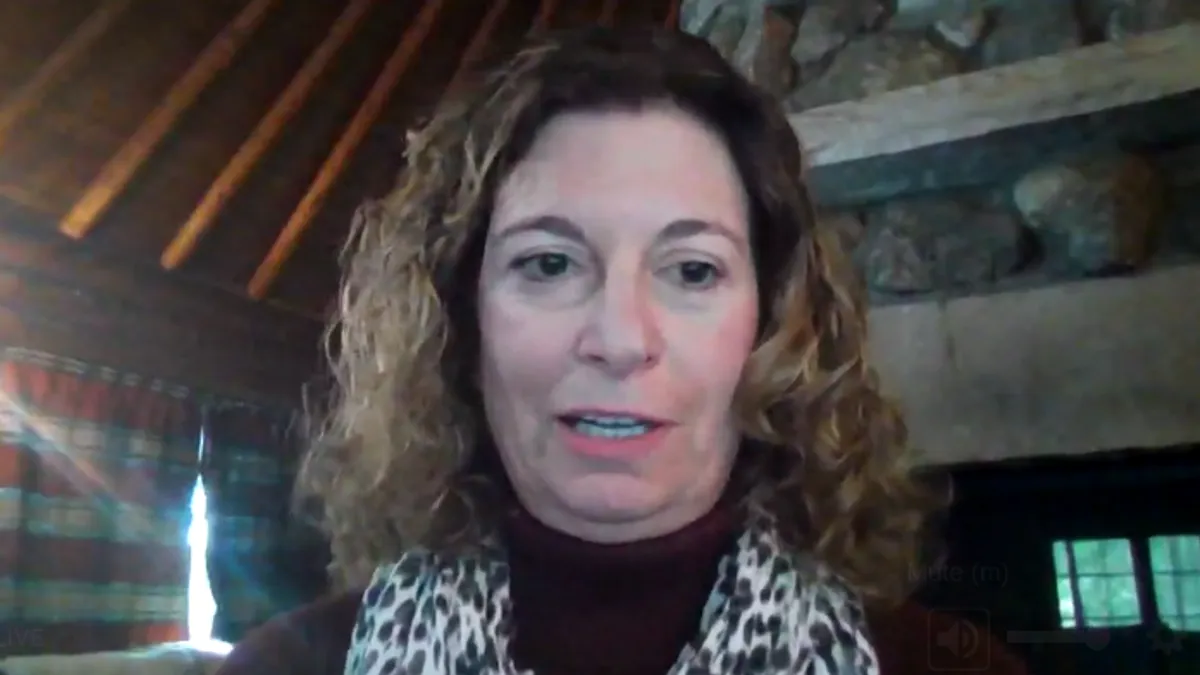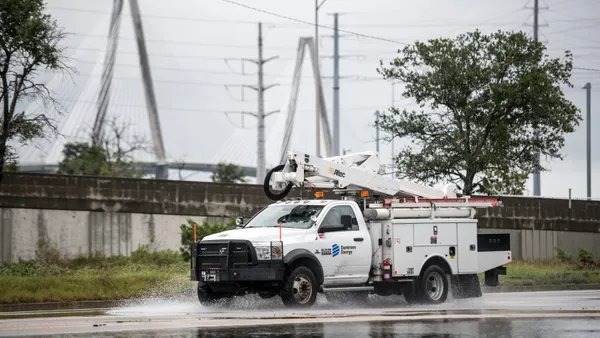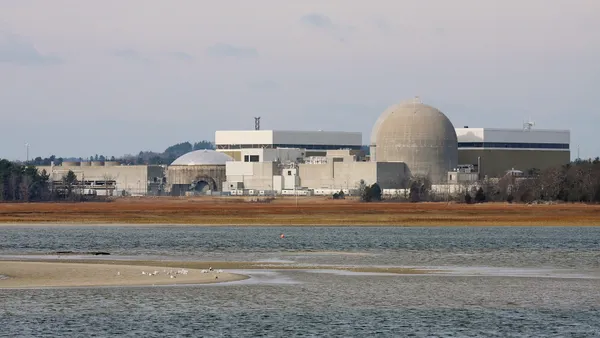Dive Brief:
-
The Federal Energy Regulatory Commission's Office of Public Participation is considering options for an intervenor funding program to cover expenses related to taking part in the agency's proceedings, according to Elin Katz, office director.
-
The funding could cover attorney fees, witness fees and other expenses related to taking part in FERC proceedings for parties that would face a major financial burden without the funding, Katz said Thursday during a joint FERC-Nuclear Regulatory Commission meeting. Developing a funding proposal is a "priority," Katz said, adding that it would have to go through a rulemaking process.
-
"We are not an advocate office," Katz said. "We develop resources and educational materials. We're here to help the public bring their voice into FERC proceedings and understand FERC, [with] an emphasis on underrepresented communities."
Dive Insight:
FERC's OPP was launched last year, with Katz, a former head of the Connecticut Office of Consumer Counsel, being named to the office in October.
The office was authorized in 1978 under the Public Utility Regulatory Policies Act, but never created. Congress in December 2020 directed FERC to set up the office, which aims to help underrepresented individuals and groups that may have limited resources navigate FERC and take part in its proceedings.
Boosting public participation is a top FERC priority, according to the agency's strategic plan released Thursday.
"The commission anticipates that more members of the public who may be affected by the commission's actions may intervene or comment in proceedings, or initiate proceedings themselves," the agency said in the plan. "FERC also anticipates that enhanced public engagement will enable FERC to make more comprehensive and well-informed decisions."
The people and groups the OPP intends to reach include environmental justice communities, landowners affected by FERC decisions, Native American tribes and grassroots advocacy organizations, according to Katz.
The office is working with FERC staff to identify possible changes to its processes that could make it easier for the public to participate at the agency, Katz said.
The OPP has six employees, but intends to have 20 by the end of the year, according to Katz.
It has fielded about 225 calls and emails from the public, with about a third of the queries coming on issues outside FERC's jurisdiction, Katz said during the FERC-NRC meeting.
"Most of the time, if we can't help someone, we can steer them to someone who can," Katz said.
The office is developing "explainers" to help the public better understand FERC and the issues it deals with, according to Katz.
Instead of providing technical assistance to the public, the office is exploring the possibility of having federal agencies, like the Department of Energy's national laboratories, provide the help, Katz said, noting that would help prevent the office from taking on an advocacy role.
The technical assistance could help the public assess claims that a project is needed as well as environmental claims, according to Katz.
"We're also engaged in a listening tour to hear directly from public stakeholders about what the needs are, rather than assuming we know them and making sure we are hearing directly from those entities ... as well as having meetings with industry participants to understand any concerns or questions they may have about the office," Katz said.
One of the office's goals is to make sure the public knows about deadlines for commenting on pending decisions and policies, according to Katz.
"We are identifying key partners and suggestions for continuing our outreach," Katz said. "We are at this point going to be moving to a more formal outreach plan."
The OPP aims to reach individual constituents and is considering having meetings at places that are affected by FERC decisions, partly to build relationships and trust instead of "trying to parachute into a community when there's a particular issue," Katz said.
During the meeting, NRC Commissioner Jeff Baran noted the nuclear agency has also been asked to provide the public with technical assistance and is reviewing how its programs and policies address environmental justice issues.
The OPP is off to a great start, according to Tyson Slocum, energy program director for Public Citizen, a consumer watchdog group that advocated for creating the office.
"The progress report so far is I think they're doing a great job," Slocum said Monday, noting a proposed rulemaking for intervenor funding could come in several months.
Besides setting up the OPP, FERC has been trying to make it easier for the public to understand the agency, according to Slocum. Federal Register notices, for example, have had clearer explanations for how to file comments at FERC, he said.
"It's part of a general approach: 'Maybe our audience shouldn't always be highly specialized lawyers, but rather the general public?' and just that acknowledgement is a big deal," Slocum said.
Editor's note: We have updated this story with comments from Public Citizen.















